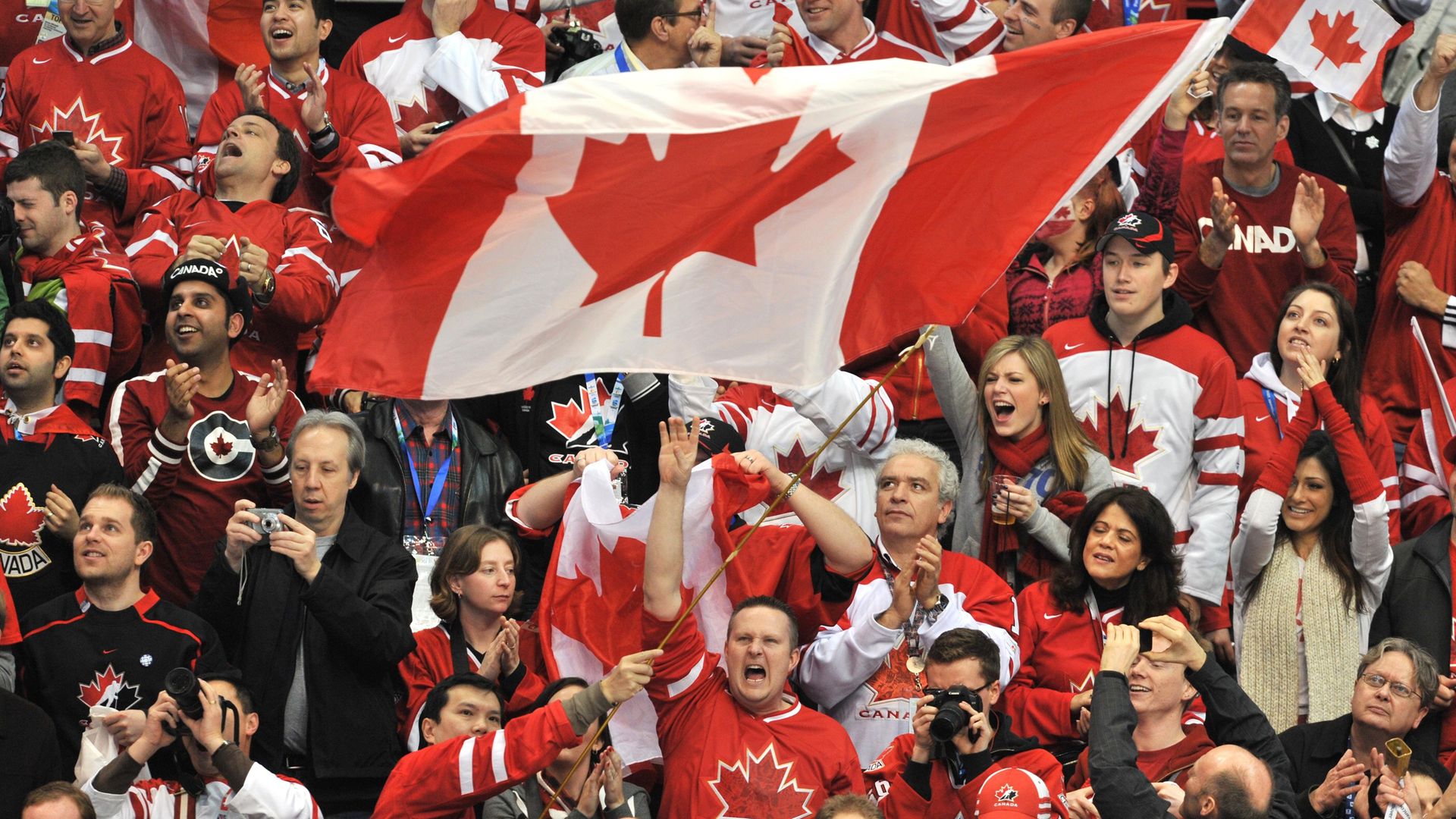
WILL SELF on Canada, and the relative his family shipped off there.
“What’s the difference between Canada and yoghurt?” is a joke first told me in the 1970s – to which the answer was: “Yoghurt is a live culture.” A half-century on the same sort of snide attitude towards all things Canadian can be easily evinced from the English – although quite possibly not from Britain’s Celtic fringe. Reflecting on the disparity in the North American nations’ response to the pandemic, a friend remarked on the distinction between the US – a polity funded by fissiparous Puritan sectarians – and Canada: one founded by Scots Presbyterian conformists. In Canada, as of the time of writing, there have been 19,995 deaths in a population of 37.59 million – a rate of one per 1,879 Canadians; while in the US there have been approximately 439,000 deaths in a population of 328.2 million – a rate of one per 748 Americans.
Socialised medicine, speaking softly, and pronouncing the ‘ou’ in ‘about’ as if it were the double o in ‘boot’ – these are some of Canadians’ cultural attributes; although arguably only the first two will have substantively contributed to their handling of the virus, while the extent to which such handling has prevented a death rate three times higher is also moot. Or possibly ‘moat’. Either way, the image we have of Canada as comfortably numb is pervasive enough to shape our view of the country – even if we’ve been there, and seen for ourselves what a vibrant and diverse society it really is.
One of the funniest depictions of anodyne Canadian behaviour is in Michael Moore’s celebrated documentary about the US’s gun-nuttery, Bowling for Columbine. In search of the X factor that separates aggressive American from their pacific neighbours, Moore crosses the border from Detroit, Michigan – where the gunshot death rate is indeed high – to Kingston, Ontario, where it’s negligible to nonexistent. Bearing in mind that many of the school spree shootings in the US are provoked by little more than grudges raised to the level of psychopathy, Moore asks a group of hair-flicking Canadian teens who’re loafing aboot a car park, how they would react if one of their peers insulted them egregiously. They think for a while then one lad drawls, “Oh, I dunno, I guess I’d maybe ridicule him”.
Gentle ridicule versus hot lead, that’s no kind of competition – unless you’re one of those Brits who, as I argued in this space a fortnight ago, has paddled up the Potomac and gone native. One of our family stories was about a much more reluctant emigrant to the Americas: my great Uncle Martin, known familiarly as ‘Uncle Martini’, for reasons that will soon become crystal clear. Prone to overindulgence in alcohol, Uncle Martin was shipped off to the Dominion in the 1930s, in order to become what was known at the time as ‘a remittance man’: an individual who might bring disgrace on the family, were he not subsidised to stay away.
Sailing up the Saint Lawrence then docking at Montreal, Uncle Martin was appalled when, upon looking out of his cabin’s porthole he saw a large billboard on the quayside proclaiming: ‘Canada Dry’. He tried frantically to remain on board – but was eventually ejected into this parched land. My father told me that Uncle Martin’s thirst was still fierce in the 1950s, when, on a tour of the US, he arranged to meet the remittance man on the bridge straddling Niagara Falls and the border. Here, Dad handed over two quart bottles of bonded liquor, because even with a permit you were still – at that time – only allowed a bottle of spirits a month. Ridiculous! In this my father concurred – and he remained equally intemperate when it came to Presbyterian Canadian temperance when I visited the country with him in the late 1970s.
Arriving at Pearson International Airport, Dad was appalled when he was charged duty on the bottle of Johnny Walker scotch he’d brought as a present for the friends we’d be staying with. He was so angry that when we arrived at their suburban house, he and the paterfamilias disappeared into the latter’s den and drank the lot. I took the bus into Toronto centre ville and wandered about, amazed that even the tiniest bit of type was translated into French: on one side of the cigarettes I bought it read ‘Player’s Filter’ and on the other ‘Player’s Filtre’. This tiny reference to the Other Canada of Quebec stirred my senses – surely these millions of Francophone Canadians couldn’t possibly be as yaourt as their English-speaking fellow citizens?
But no – rest assured: whatever the reality of Canada – a perfectly fissiparous nation in its own right, and one just as intent on converting all its fossil fuel reserves into greenhouse gases as its giant southern neighbour – the metropole’s view of its former possession exactly mirrors our own. The French find the Quebecois anodyne in the extreme: they talk funny as well, saying ‘booteau’ instead of ‘bateau’; while unlike Rimbaud – or Uncle Martin for that matter – they never get drunk in it.










